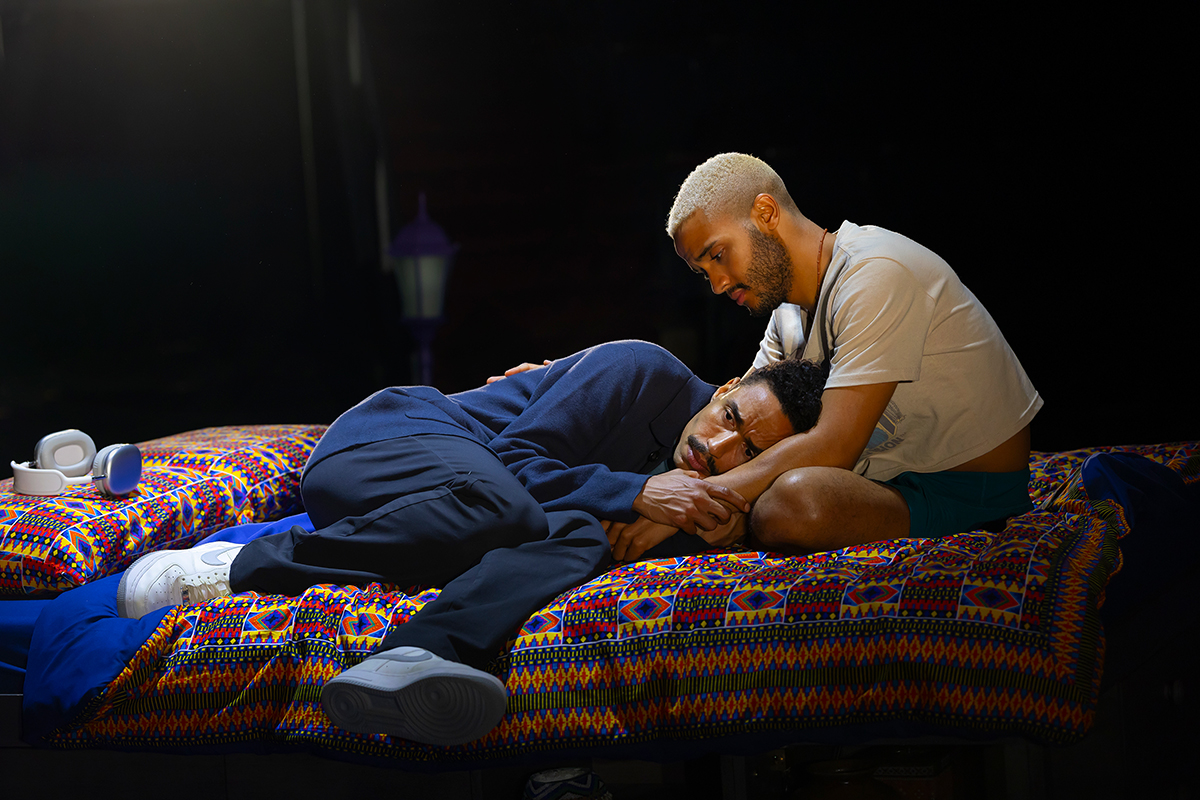Chad In Charge
After a year of historic victories, HRC's Chad Griffin sets his sights on full equality

Chad Griffin of HRC
(Photo by Todd Franson)
MW: They did. But what’s your game plan?
GRIFFIN: I think it’s important that we set the goal post. And the Prop. 8 case really set the goal post in many ways. For four and a half years we had the Prop. 8 case and the Windsor case.
It is certainly an aggressive goal, but I think it’s important to set aggressive goals in this movement because there are real-life people, particularly young people, who suffer every single day that there’s delay.
I think it is an aggressive goal, but it’s a reasonable goal. It’s one that will take every single organization in the movement to achieve. We will have victories in state court, we will have victories at the ballot box, we’ll have victories in state legislatures, and ultimately we’ll have another victory at the United States Supreme Court. No one can predict which case – if it’s a current case, if it’s a future case, if it’s multiple cases.
By the way, Maggie Gallagher outdid me and said three years [until a Supreme Court decision granting nationwide marriage equality]. So I actually hope Maggie is right with her aggressive goal as opposed to mine. Who knows, I hope she too will evolve and join our side.
MW: Even Justice Scalia in his dissents has been very accurate in his predictions so far.
GRIFFIN: He was accurate last time, and he is accurate this time. In fact, he wrote the next decision. So it’s sort of done. When that next case does finally reach the court, Justice Scalia, all he has to do is pull out the file and hand it to the majority.
MW: To go back to the South, it seems that is the final frontier, so to speak. There just seems to be so much work that needs to be done, so much basic educating. Is that daunting in a way?
GRIFFIN: It is, but it’s the daunting challenges we need to tackle now. That’s what we need. If the challenges before us aren’t daunting then we’re not doing enough. It’s the place I want us to be and I want to spend my time.
But these places are also hopeful. Folks in these places are hungry for support. There are so many things beyond marriage – or before marriage – in those states.
We just did this bipartisan poll in Arkansas, Virginia and Mississippi, and there was actually a tremendous amount of hopeful data points in that polling.
For instance, in Mississippi the poll release shows six in 10 people say that they know someone who is LGBT. Now the truth is 10 in 10 do, whether they know it or not, but more people are closeted in places like that because there aren’t protections. Someone fears putting their picture with their 20-year partner on their desk at work because they could be fired, so people remain closeted in places like that. We’ve got to move forward with protections.
There is so much basic work and organizing that is needed, and it’s not just the South by the way, it’s also parts of the Midwest — the states that a lot of folks fly over from New York to L.A. The fact of the matter is most people live in between. People there are eager to be a part of something that, for the most part, they have just watched happen in other places.
I do think we’ll have Southern states that step up and lead. There are certain Southern states in the civil rights movement that were way behind the curve and I think there’s a desire, certainly among the leadership, in some of those states, to be ahead of the curve. So what we’ve got to do is organize like we’ve never organized before in these places and work harder and form partnerships that have never been formed in order to move the needle on equality everywhere for everyone, including in the South.
MW: You mentioned workplace protections. We recently saw the Employment Non-Discrimination Act take a very big step forward after a committee hearing that lasted about 15 minutes.
GRIFFIN: Shocked us all. Everyone was prepared for a few hours.
MW: What was your reaction to that vote? And how do you get people excited about ENDA in the same way they’re excited about marriage equality?
GRIFFIN: Marriage provides joy and happiness to a loving couple that are getting married. ENDA provides the most basic protections to keep someone from getting fired, and I think the biggest hurdle is most people think the law is already on the books, including in all these Southern places. The vast majority of people in Mississippi believe it’s already illegal. When told it’s not, the vast majority believe it should be, including Republicans.
This, to me, is the biggest no-brainer of all. It was absolutely a hopeful sign coming out of that committee and the votes we got, this could be one of the few issues in this town these days that’s bipartisan. Coming out of that committee with all the Democrats, three Republicans, including Sen. Orrin Hatch of Utah [voting to send ENDA to the full Senate]…. And then only one other Republican being there, and that was Lamar Alexander, who spent most of his time praising his colleague Mark Kirk for his leadership on this issue and then talking about a couple of amendments he was interested in, but didn’t even push them forward in committee. And then the only ”no” votes we had were the proxies that Alexander delivered. No one showed up on their own to deliver them.
It’s a real sign of progress. We still have a long way to go. We still have to get 60 votes in the Senate and then we have to go, obviously, to the House. But coming out of committee with that kind of bipartisan support is incredible. And so is the lack of vehement opposition. You didn’t hear a single hateful thing.
MW: Do you have any forecasts for the Senate and, perhaps more importantly, the House of Representatives?
GRIFFIN: It is a top priority for me and this organization. And I am optimistic.
I was optimistic we would get out of committee – I didn’t know it would be in the fully bipartisan way that it was. We knew we would have a Republican or two. It’s going to take a lot of work, but I’m optimistic that we can get to 60 in the Senate.
We still need more Republicans and we still need more Democrats who are undecided on this issue. And then we’ll turn the corner to the hard work that is the House. But, again, I really think there are a lot of things folks have thought impossible over the last four years, and the impossible has gone from impossible to reality. And I really am optimistic that we can get ENDA through the Senate. And I’m optimistic, although it will be challenging, that we can get there in the House.
It’s going to take a lot of work from all of us across the movement to get this done, but particularly coming out of that committee in the way we did, I’m optimistic.
MW: It seems going forward Republican support is going to become more and more crucial. What’s your take?
GRIFFIN: There are two things. There are Republicans, and then there’s the Republican Party — the actual bureaucratic entity that is the party. For Republicans, ENDA is noncontroversial. They support it at the same level Democrats do. I think increasingly the elected leadership is catching up with Republicans. That was evidenced in the committee vote and I hope will be evidenced in what comes out of the Senate.
At the end of the day this is the most conservative of American principals: One should be judged based on the job that you do, not based on who you are, who you love, how you were born.
I often talk about it, and did in the South, and it’s language I grew up with, the Golden Rule. There is nothing more central to the Golden Rule than ENDA. Treat others as you wish to be treated. If you look over the last four and a half years at how Republicans have evolved on the issue of marriage, the issue of employment nondiscrimination should be the easiest no-brainer of all for members of both parties.
And I do think for Democrats or Republicans who oppose something that is supported by 80 percent of the American public, something that is the most basic and fundamental principal of fairness, I think there will be prices to pay for Democrats and Republicans who aren’t on the right side of this issue. I think that’s becoming increasingly evident. And I hope that as we move forward in these votes more and more members of Congress will evolve to vocally and overtly support ENDA.
Support Metro Weekly’s Journalism
These are challenging times for news organizations. And yet it’s crucial we stay active and provide vital resources and information to both our local readers and the world. So won’t you please take a moment and consider supporting Metro Weekly with a membership? For as little as $5 a month, you can help ensure Metro Weekly magazine and MetroWeekly.com remain free, viable resources as we provide the best, most diverse, culturally-resonant LGBTQ coverage in both the D.C. region and around the world. Memberships come with exclusive perks and discounts, your own personal digital delivery of each week’s magazine (and an archive), access to our Member's Lounge when it launches this fall, and exclusive members-only items like Metro Weekly Membership Mugs and Tote Bags! Check out all our membership levels here and please join us today!



























